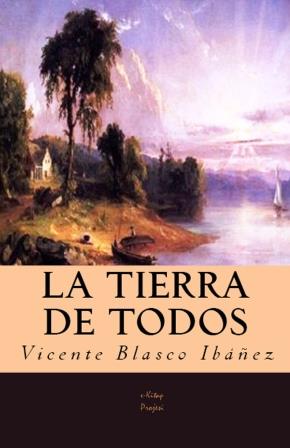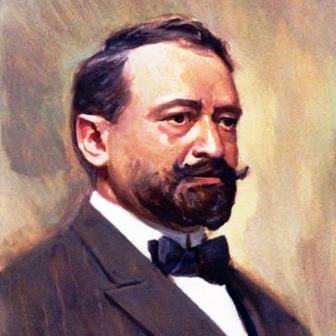
La Tierra de Todos
Como todas las mananas, el marques de Torrebianca salio tarde de su dormitorio, mostrando cierta inquietud ante la bandeja de plata con cartas y periodicos que el ayuda de camara habia dejado sobre la mesa de su biblioteca.
More Search Results...

Como todas las mananas, el marques de Torrebianca salio tarde de su dormitorio, mostrando cierta inquietud ante la bandeja de plata con cartas y periodicos que el ayuda de camara habia dejado sobre la mesa de su biblioteca.
Como todas las mananas, el marques de Torrebianca salio tarde de su dormitorio, mostrando cierta inquietud ante la bandeja de plata con cartas y periodicos que el ayuda de camara habia dejado sobre la mesa de su biblioteca.
Cuando los sellos de los sobres eran extranjeros, parecia contento, como si acabase de librarse de un peligro. Si las cartas eran de Paris, fruncia el ceno, preparandose a una lectura abundante en sinsabores y humillaciones. Ademas, el membrete impreso en muchas de ellas le anunciaba de antemano la personalidad de tenaces acreedores, haciendole adivinar su contenido.
Su esposa, llamada «la bella Elena», por una hermosura indiscutible, que sus amigas empezaban a considerar historica a causa de su exagerada duracion, recibia con mas serenidad estas cartas, como si toda su existencia la hubiese pasado entre deudas y reclamaciones. El tenia una concepcion mas anticuada del honor, creyendo que es preferible no contraer deudas, y cuando se contraen, hay que pagarlas.

Vicente Blasco Ibáñez (1867 – 1928) was a journalist, politician and best-selling Spanish novelist in various genres whose most widespread and lasting fame in the English-speaking world is from Hollywood films adapted from his works.
He was born in Valencia. At university, he studied law and graduated in 1888 but never went into practice. He was more interested in politics, journalism, literature and women. He was a particular fan of Miguel de Cervantes.
In politics he was a militant Republican partisan in his youth and founded a newspaper, El Pueblo (translated as The People) in his hometown. The newspaper aroused so much controversy that it was taken to court many times. In 1896, he was arrested and sentenced to a few months in prison. He made many enemies and was shot and almost killed in one dispute. The bullet was caught in the clasp of his belt. He had several stormy love affairs.
He volunteered as the proofreader for the novel Noli Me Tangere, in which the Filipino patriot José Rizal expressed his contempt of the Spanish colonization of the Philippines. He travelled to Argentina in 1909 where two new cities, Nueva Valencia and Cervantes, were created. He gave conferences on historical events and Spanish literature. Tired and disgusted with government failures and inaction, Vicente Blasco Ibáñez moved to Paris at the beginning of World War I. When living in Paris, Ibáñez had been introduced to the poet and writer Robert W. Service by their mutual publisher Fisher Unwin, who asked Robert W. Service to act as an interpreter in the deal of a contract concerning Ibáñez.
He was a supporter of the Allies in World War I.
He died in Menton, France in 1928, the day before his 61st birthday, in the residence of Fontana Rosa (also named the House of Writers, dedicated to Miguel de Cervantes, Charles Dickens and Honoré de Balzac) that he built.
